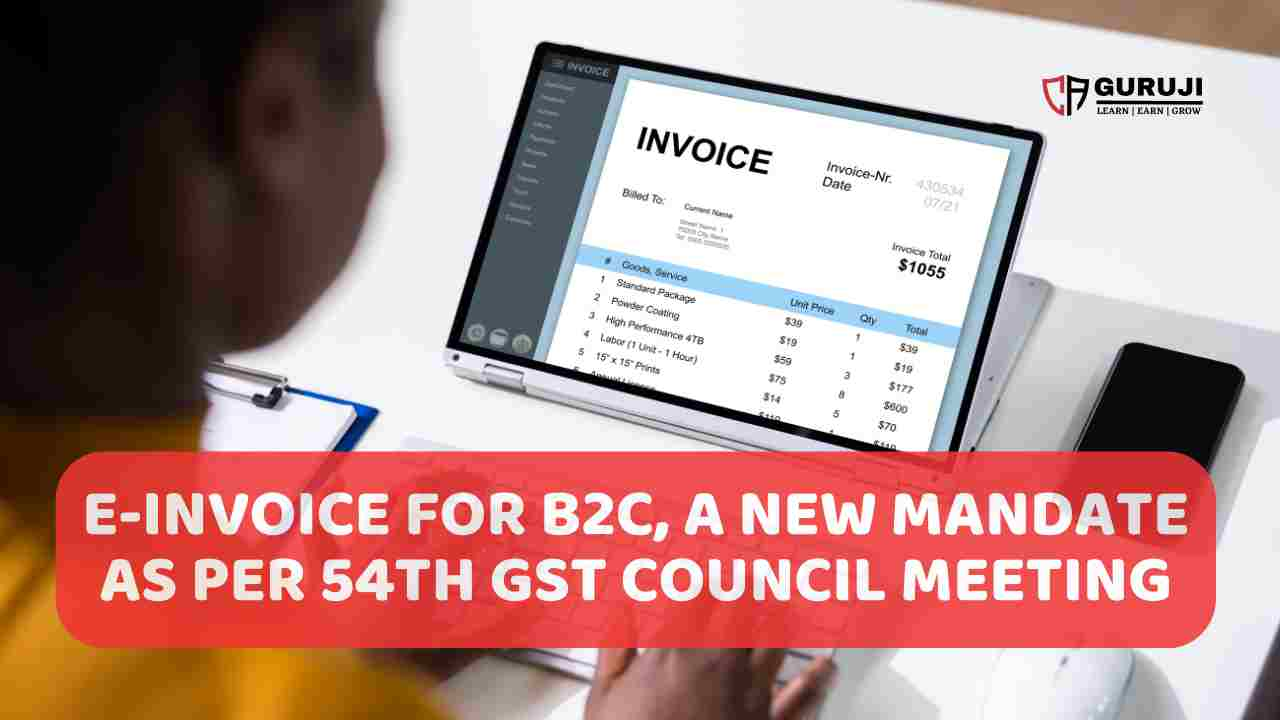The 54th GST Council Meeting marked a significant milestone in the evolution of India’s Goods and Services Tax (GST) regime. One of the key decisions was the recommendation to pilot B2C e-invoicing.
B2C E-invoicing:
The GST Council recommended roll out of a pilot for B2C e-Invoicing, following the successful
implementation of e-invoicing in the B2B sector. The Council recognized potential benefits of einvoicing in retail, such as improved business efficiency, environmentally friendly, cost efficiency to the business, etc.
It would also provide an opportunity to the retail customers to verify the reporting of the invoice in the
GST return. The pilot will be rolled out on voluntary basis in selected Sectors and States.
These changes will be applicable from a date which will be given through separate GST notification
Click here to Get Detailed Press Release of 54th GST council Meeting
Understanding B2C E-Invoicing
B2C e-invoicing refers to the electronic generation and transmission of invoices for Business-to-Consumer transactions. Similar to its B2B counterpart, it aims to streamline the invoicing process, reduce errors, and improve compliance.
Currently, businesses with a turnover of Rs 5 crore and above are required to generate e-invoices for their Business-to-business (B2B) supply. The government has been making e-invoices mandatory for businesses in a staggered manner.
GST e-invoicing was first made mandatory for companies with a turnover of over Rs 500 crore from October 1, 2020, which was gradually reduced in a phased manner as below
| Turnover | Effective Date | Notification No. |
|---|---|---|
| 500 Cr. | 1 Oct 2020 | 61/2020 |
| 100 Cr. | 1 Jan 2021 | 88/2020 |
| 50 Cr. | 1 Apr 2021 | 05/2021 |
| 20 Cr. | 1 Apr 2022 | 01/2022 |
| 10 Cr. | 1 Oct 2022 | 17/2022 |
| 5 Cr. | 1 Aug 2023 | 10/2023 |
All other Changes are covered in below video
Pilot Rollout and Future Plans
The GST Council has proposed a voluntary pilot for B2C e-invoicing in selected sectors and states. This pilot phase will provide valuable insights into the practical implementation and potential challenges before a wider rollout.
The Central Board of Indirect Taxes and Customs (CBIC) has made it clear that expanding e-invoicing rules to B2C supply is a priority to curb revenue leakage. While the current mandate for e-invoicing is limited to businesses with a turnover of Rs 5 crore and above, the government plans to extend this requirement to B2C transactions in the future.
Visit www.cagurujiclasses.com for practical courses











